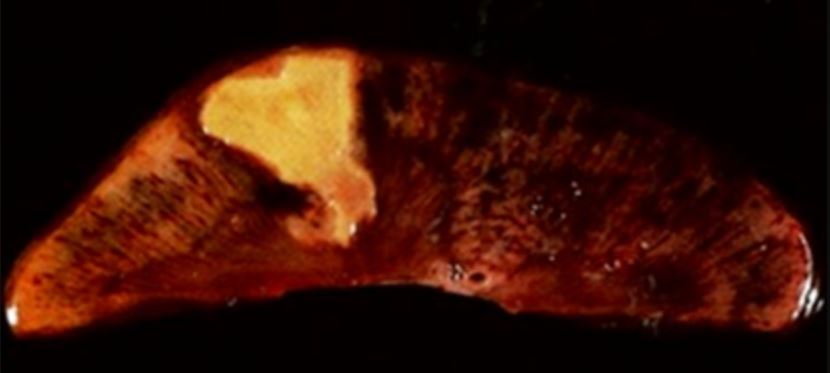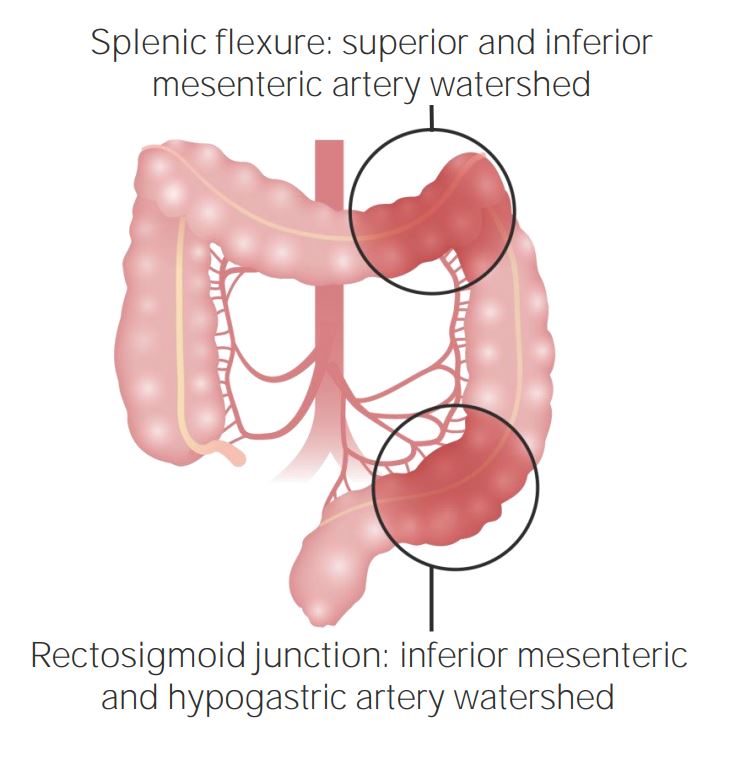Playlist
Show Playlist
Hide Playlist
Loss of Calcium Homeostasis
-
Slides Cellular Pathology Mechanisms of Injury.pdf.pdf
-
Download Lecture Overview
00:00 Next, Loss of Calcium Homeostasis. 00:03 And again, calcium is going to be a very important intracellular signaling molecule for a number of processes that we're gonna talk about. 00:11 And it's not just about the calcium, we're also dramatically changing sodium, potassium and proton gradients. 00:17 And they're, they will also be important in the injured cell. 00:21 But we're going to focus here on calcium. 00:23 This is a cartoon of a regular old cell. 00:26 You see the nucleus on the right hand side. 00:28 You see the multiple mitochondria. 00:30 You see the smooth endoplasmic reticulum which is in the middle. 00:34 You see the extra cellular calcium, 1.3 millimolars, that's about the average extracellular calcium in most of our tissues and in the bloodstream. 00:43 The intracellular cytosolic concentration is less than 0.1 micromolar. 00:49 That's a 10,000 fold difference from the outside of the cell to the inside of the cell. 00:54 In each of the organelles, the smoother are in the middle and the mitochondria they have, they are also stores of calcium interacellularly and they range between one and 100 micromolar. 01:07 So we have normally very low levels of cytosolic calcium. 01:12 Now let's injure this cell. 01:14 And when we do that, we no longer are able to keep that calcium out of the cytosol. 01:21 So you see the the calcium outside, you see the injury occurring to the cell. 01:26 As a result of that, we lose our transport, our ability to get calcium back out and maintain normal membrane integrity. 01:34 And that calcium comes in, that calcium, that spike in calcium coming in is a secondary signal to drive the release of the calcium from mitochondria and smooth endoplasmic reticulum. 01:46 So that little spike at the beginning, now leads to a rather large level of intracellular calcium. 01:53 It may not approach the 1.3 millimolar that we had in the outside space, but it's pretty high. 02:00 And when that happens, a number of other events will occur. 02:03 So we will activate because of just the free calcium. 02:07 A number of enzymes called calpains, these are calcium dependent. 02:11 They're non-lysosomal, they live in an inactive form because of low calcium. 02:16 In the cytosol, they're cysteine proteases called calpains. 02:20 What does that mean? If calpains get activated because of free calcium. 02:24 Well, in fact, calpains have increased ATPase activity. 02:29 They will use ATP in their other functions. 02:34 They will break down phospholipids so they're phospholipases. 02:37 Some calpains are proteases, so we'll break down proteins and some of them have endonuclease activities, so they will break down chromatin. 02:46 So now, with that single initial movement of calcium into the cell and release from intracellular stores, that big spike, we've activated a whole variety of things on the right-hand side that are going to lead to cell death Next of the kind of four basic biochemical mechanisms is oxygen free radicals.
About the Lecture
The lecture Loss of Calcium Homeostasis by Richard Mitchell, MD, PhD is from the course Cellular Injury.
Included Quiz Questions
The extracellular concentration of calcium is approximately how many times higher than the intracellular concentration?
- 10,000
- 10
- 100
- 1,000
- 50,000
Which of the following will result from the increased intracellular calcium concentration caused by an injury to the cell?
- Activation of CALPAINS
- Release of calcium ions inside the smooth endoplasmic reticulum lumen
- Inhibition of phospholipases
- Induction of the proliferation signaling pathway
- Activation of HIF 1-alpha signaling pathway
Customer reviews
5,0 of 5 stars
| 5 Stars |
|
5 |
| 4 Stars |
|
0 |
| 3 Stars |
|
0 |
| 2 Stars |
|
0 |
| 1 Star |
|
0 |





